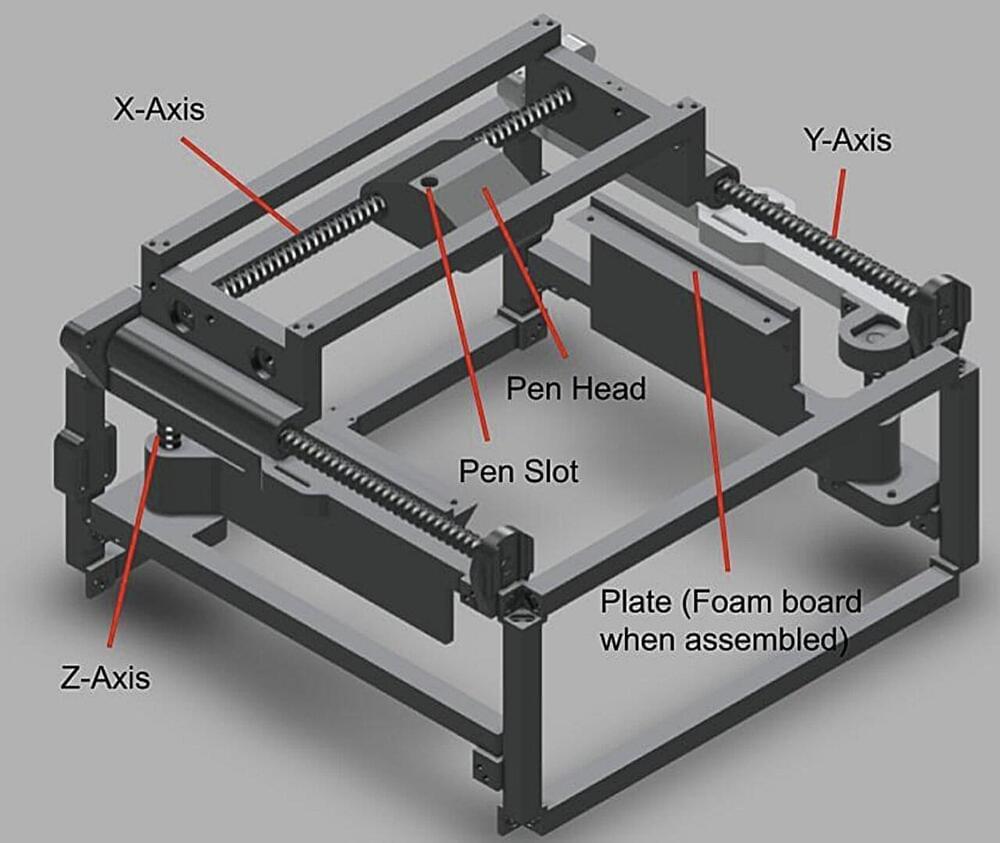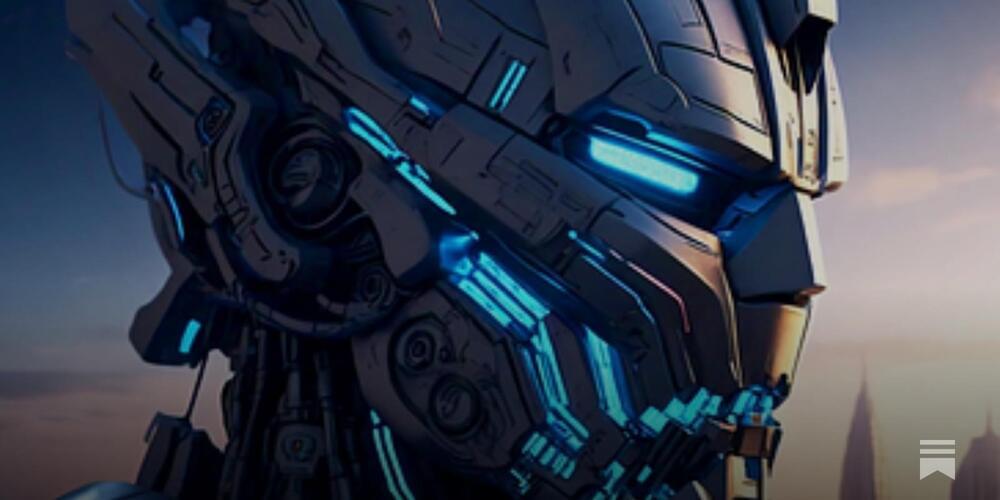Ignored for a hundred years, comb jelly research is back in business.
Category: business – Page 31

KPMG Survey: 68% Of Execs Plan To Funnel Up To $250 Million Into AI In The Next Year
In today’s AI news, a majority of senior executives across multiple industries expect AI to fundamentally reshape their businesses in the next 12 to 24 months, according to KPMG’s latest AI Quarterly Pulse Survey. According to the survey, 68% of executives plan to invest between $50M and $250M into GenAI over the next 12 months, marking a substantial increase from 45% in Q1 of 2024.
S chief AI scientist, Yann LeCun, the biggest takeaway from DeepSeek In other advancements, hot healthcare startup Rad AI has raised a Series C funding round. The company, which creates AI-powered tools for radiologists, grabbed $60 million dollars of fresh funding in a Series C round led by Transformation Capital, according to two sources, the new fundraise valued Rad AI at $525 million.
Meanwhile, Alphabet’s Google, already facing an unprecedented regulatory onslaught, is looking to shape public perception and policies on artificial intelligence ahead of a global wave of AI regulation. A key priority comes in building out educational programs to train the workforce on AI. “Getting more people and organizations, including governments, familiar with AI and using AI tools, makes for better AI policy and opens up new opportunities.”
T be fixated on the best big model … + Then, join renowned investor Ray Dalio of Bridgewater Associates, for an engaging fireside chat with Merantix Capital Co-Founder, Rasmus Rothe exploring the enormous potential of artificial intelligence in decision-making, innovation, and global investing.
And, artificial general intelligence could possess the versatility to reason, learn and innovate in any task. But with rising concerns about job losses, surveillance and deepfakes, will AGI be a force for progress or a threat to the very fabric of humanity?
We close out with, a thought-provoking panel discussion, moderated by Becky Anderson, Anchor & Managing Editor of CNN Abu Dhabi, featuring Ian Bremmer, President and Founder of Eurasia Group and GZERO Media; Nadia Calviño, President of the European Investment Bank; Ngozi Okonjo-Iweala, Director General of the WTO; Brad Smith, Vice Chair and President of Microsoft; and Peng Xiao, CEO of G42.
Thats all for today, but AI is moving fast, Like, comment, and subscribe for more AI news! Please vote for me in the Entrepreneur of Impact Competition today! Thank you for supporting my partners and I, it’s how I keep Neural News Network free.

Behavior-based dependency networks can shape the resilience of cities following economic shocks
Unexpected crises or events, such as the COVID-19 pandemic or natural disasters, can cause disruptions to a city’s economy. For instance, forcing businesses to temporarily close or hindering their daily operations. As businesses often rely on each other, changes in the operation of one company can cause ripple effects, like influencing its suppliers, distributors or other businesses it depends on.
To explore the widespread economic impact of shocks and adverse events, past studies primarily examined the proximity between businesses, assuming that businesses are primarily connected to nearby companies or establishments. However, some findings suggest that people’s movements between businesses (i.e., behavior-based dependencies) also contribute to the resilience of cities following economic disruptions.
These dependencies are essentially relationships between businesses shaped by the behavior and habits of shared customers. For example, if a tech company is forced to close its offices, this might impact not only other nearby restaurants, but also gyms or other establishments located in different parts of a city, which some employees typically visit before or after work.

Fundraising for Founder-led Biotech
A blog webpage written by entrepreneur Matt Krisiloff which offers helpful advice to scientific founders of biotechnology companies on how to fundraise and manage relations with investors.
“Because of examples of great success in the broader technology world, we’re seeing the emergence of what I’d call a more ‘Silicon Valley’ mindset in biotech investing. This approach prizes technology development at the core of the company’s DNA and – drawing from examples in tech such as Microsoft and Meta and in biotech such as Regeneron and Genentech – recognizes that technical founders who can grow into business leaders often build more innovative and ultimately more successful companies. This shift has opened up new avenues for fundraising that founders should understand and look towards”
[](https://mattkrisiloff.com/2025/01/07/fundraising-for-found-led-biotech/)
At this point in my career across the biotech-related projects I’ve run, I’ve personally raised about $100 million. In some ways this feels like a lot, but given the scope of biotech and hard tech projects I care most about, it’s really just a drop in the bucket. From these experiences though, I’ve learned some things that I believe can help other founders navigate fundraising, and want to share them – especially for newer founders working on interesting technologies that may be approaching fundraising for the first time.
Most of what I am saying is for biotech, but I think a lot of the observations apply for medical devices and other hard science startup fundraising too.
Biotech exists in a unique corner of the investment world, one where the promise of revolutionary breakthroughs meets harsh realities of extended development timelines and significant capital requirements. This is truer today than ever – while the broader equity markets has seen unprecedented growth over the past two years, the biotech sector has remained in a relatively depressed state.
Clone Robotics New Superintelligent Androids Sup[rise Everyone
Prepare for AGI with me — https://www.skool.com/postagiprepardness.
🐤 Follow Me on Twitter https://twitter.com/TheAiGrid.
🌐 Checkout My website — https://theaigrid.com/
Links From Todays Video:
https://www.clonerobotics.com/
Welcome to my channel where i bring you the latest breakthroughs in AI. From deep learning to robotics, i cover it all. My videos offer valuable insights and perspectives that will expand your knowledge and understanding of this rapidly evolving field. Be sure to subscribe and stay updated on my latest videos.
Was there anything i missed?
(For Business Enquiries) [email protected].
#LLM #Largelanguagemodel #chatgpt.

Automating penmanship: Researchers develop cost-effective, AI-enhanced robotic handwriting system
Recent advances in robotics and artificial intelligence (AI) are enabling the development of a wide range of systems with unique characteristics designed for varying real-world applications. These include robots that can engage in activities traditionally only completed by humans, such as sketching, painting and even hand-writing documents.
These robots could have interesting applications in both professional and creative contexts, as they could help to automate the creation of artistic renderings, legal papers, letters and other documents in real time. Most handwriting robotic systems to date have considerable limitations, such as high production costs (around $150) and a large size.
Two researchers affiliated with the global student non-profit organization App-In Club recently developed a new cost-effective robotic handwriting system that could be more affordable for individual consumers, schools, universities and small businesses. This system, introduced in a paper on the arXiv preprint server, integrates a Raspberry Pi Pico microcontroller and other components that can be produced via 3D printing.

20 Years in the Making: Scientists Unveil Breakthrough Anticancer Weapon
A new twist on a decades-old anticancer strategy has demonstrated significant potential against various cancer types in a preclinical study conducted by researchers at the Perelman School of Medicine at the University of Pennsylvania
The University of Pennsylvania (Penn) is a prestigious private Ivy League research university located in Philadelphia, Pennsylvania. Founded in 1740 by Benjamin Franklin, Penn is one of the oldest universities in the United States. It is renowned for its strong emphasis on interdisciplinary education and its professional schools, including the Wharton School, one of the leading business schools globally. The university offers a wide range of undergraduate, graduate, and professional programs across various fields such as law, medicine, engineering, and arts and sciences. Penn is also known for its significant contributions to research, innovative teaching methods, and active campus life, making it a hub of academic and extracurricular activity.

Sam Altman Tells AI Fans To Lower Their Expectations As Rumors Swirl OpenAI Is On The Brink Of Superintelligence
In today’s AI news, OpenAI CEO Sam Altman is trying to calm the online hype surrounding his company. On Monday, the tech boss took to X to quell viral rumors that the company had achieved artificial general intelligence. “Twitter hype is out of control again,” he wrote. “We are not gonna deploy AGI next month, nor have we built it.”
In other advancements, Stuttgart, Germany-based Sereact has secured €25mn to advance its embodied AI software that enables robots to carry out tasks they were never trained to do. “With our technology, robots act situationally rather than following rigidly programmed sequences. They adapt to dynamic tasks in real-time, enabling an unprecedented level of autonomy,” said Ralf Gulde, CEO of Sereact (short for “sense, reason, act”).
Then, seven years and seven months ago, Google changed the world with the Transformer architecture, which lies at the heart of generative AI applications like OpenAI’s ChatGPT. Now Google has unveiled a new architecture called Titans, a direct evolution of the Transformer that takes us a step closer to AI that can think like humans.
And, the World Economic Forum Global Risks Report 2025 reveals a world teetering between technological triumph and profound risk. As a structural force, it “has the potential to blur boundaries between technology and humanity” and rapidly introduce novel, unpredictable challenges.
In videos, The next frontier of AI is physical AI. NVIDIA Cosmos—a platform of state-of-the-art generative world foundation models, advanced tokenizers, guardrails, and an accelerated data processing and curation pipeline—accelerates the development of physical-AI-embodied systems such as robots and autonomous vehicles.
Then, join Jeff Crume and Martin Keen as they delve into the world of Artificial Intelligence and explore the Pattern of probabilistic pattern matching, hallucinations, and errors in AI systems. From the limitations of current AI models to the potential of inference time compute models, discover the fascinating and often surprising landscape of AI reasoning.
And, LLMs continue to improve at an exponential pace. So what should you do as a founder to take advantage of this moment? In this episode of Office Hours, YC General Partners discuss what you should consider if you’re thinking about pivoting to AI or incorporating it into your business.
Blade Runner (OST) — I Am The Business
More human than human.
Blade runner — original soundtrack score.
Vangelis.
Copyright Disclaimer Under Section 107 of the Copyright Act 1976, allowance is made for “fair use” for purposes such as criticism, comment, news reporting, teaching, scholarship, and research. Fair use is a use permitted by copyright statute that might otherwise be infringing. Non-profit, educational or personal use tips the balance in favor of fair use.”
NOTICE: I DONT own any of this, This is for entertainment.

AI Or Not Raises $5 Million To Stop AI Fraud, Deepfakes, And Misinformation
In today’s AI news, AI or Not is on a mission to protect individuals and organizations from the risks of generative AI misuse. AI or Not, a widely covered AI fraud detection platform, has raised $5 million in a seed funding round to accelerate its use of “AI to detect AI” in images, audio video and deepfakes to prevent fraud and misinformation.
Layoffs And, AI media tech provider Runway has announced the release of Frames, its newest text-to-image generation model, and it’s winning early praise from users for producing highly cinematic visuals — a fitting compliment given Runway is known primarily as an AI video model provider. Could Frames dethrone Midjourney as the go-to choice?
In other advancements, ChatGPT maker OpenAI has finalized a version of its new reasoning AI model o3 mini and would be launching it in a couple of weeks, CEO Sam Altman said on Friday. The Microsoft-backed company has considered user feedback and, consequently, plans to release the API and ChatGPT simultaneously, Altman wrote.
In videos, character consistency has never been easier! Now you can use just a single image to generate consistent AI videos. Hailuo (Minimax) Subject Reference is AMAZING. In this tutorial they show you how to use it, creative use cases and a honest review. Enjoy!
Then, discover how Microsoft 365 Copilot Chat enables your entire workforce from sales to field service solutions. Microsoft 365 Copilot Chat can transform business processes with free secure AI chat, agents, and enterprise data protection.
And, IBM’s Amanda Downie discusses how combining human empathy with AI-driven insights can transform business outcomes, from building smarter customer experience solutions to driving efficiency and productivity. Learn how to harness the power of human-AI collaboration to create personalized, efficient, and effective customer experiences.
We close out with Tim from Theoretically Media, diving into the newly released Vidu 2.0 model, exploring its image-to-video, reference-to-video features, and overall performance. He compares it to Luma’s Ray2 text-to-video approach, as well as Sora’s evolving capabilities, highlighting where each model shines, (and where they still struggle).